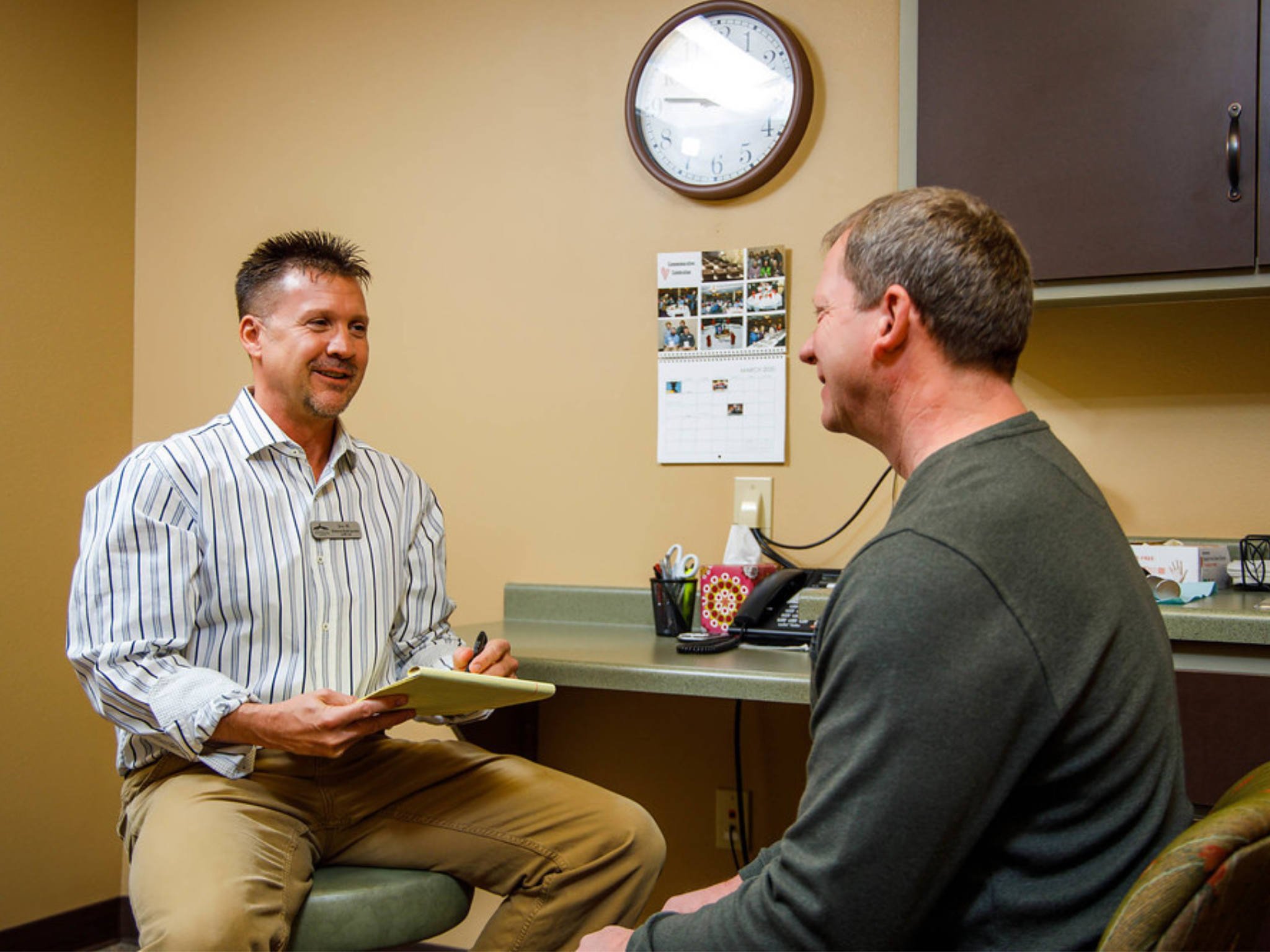Living with a bleeding disorder affects more than just the body. It impacts emotional and psychological well-being, as well. Managing a chronic condition like hemophilia or von Willebrand disease often comes with daily stress, uncertainty, and limitations that can weigh heavily on a person’s mental health.
At the Hemophilia Outreach Center (HOC), we recognize that mental and emotional care is just as important as physical treatment. That’s why behavioral health is built into our comprehensive care model. Joe Hoelscher, MSW, LCSW, leads our behavioral health program, providing compassionate supportive therapy tailored to the needs of people with bleeding disorders and their families.
Understanding the Emotional Impact
People living with bleeding disorders often face a wide range of emotional challenges, including:
- Ongoing stress related to treatment schedules, pain, or financial strain
- Anxiety about the risk of unexpected bleeding episodes and fear of the unknown
- Isolation from missing out on activities or feeling misunderstood by others
- Depression linked to the long-term nature of living with a chronic illness
These responses are valid, and you’re not alone in experiencing them. Recognizing these emotional patterns is a vital first step toward improving emotional wellness.
Everyday Strategies for Emotional Wellness
When you’re struggling with your mental health, small steps can make a big difference. Here are some simple ways to care for your emotional well-being:
- Check in with yourself – Pause and name what you’re feeling. Acknowledging your emotions helps reduce their intensity and gives you a starting point for managing them.
- Create a routine – A daily rhythm—even something simple—can help provide stability and a sense of control when everything else feels uncertain.
- Move your body – Physical activity, when safe for your condition, can ease stress and improve mood. Even a short walk or gentle stretching makes a difference.
- Relax your mind – Spend just 2 to 5 minutes a day on deep breathing, meditation, or guided relaxation. Apps or online videos can help you get started.
- Fuel your body well – A healthy, balanced diet can help regulate mood and energy. Limiting processed foods and adding more nutrient-rich options may ease symptoms of anxiety and depression.
- Set small, obtainable goals – Break big tasks into manageable steps. Whether short- or long-term, accomplishing goals can help restore motivation and confidence.
- Find joy in something meaningful – Return to a favorite hobby, try something new, or volunteer your time. Doing something that matters to you creates a sense of purpose and connection.
- Be creative – Creative expression through music, writing, or art can reduce stress, lift your mood, and even support overall wellness.
Behavioral Health Support at HOC
At HOC, behavioral health isn’t separate from care—it’s a core part of how we support our community. Joe works closely with patients of all ages to address emotional needs through:
- One-on-one counseling
- Family support
- Education and tools for managing stress and emotions
Our approach is patient-centered, confidential, and designed to help individuals feel heard, supported, and empowered. We also provide specialized care for women and girls through our Menorrhagia Clinic, where hematologists, gynecologists, physical therapists, and behavioral health experts work together to address both the physical and emotional challenges of living with a bleeding disorder. Behavioral Health Services at HOC are available to patients and their immediate families.
To schedule an appointment, call us at 920-965-0606.
You’re Not Alone
Mental health is health—and taking care of it is a vital part of managing a bleeding disorder. This Mental Health Awareness Month, we encourage you to check in with yourself, your loved ones, and your care team. Whether you’re feeling overwhelmed, stuck, anxious, or simply need someone to talk to, HOC is here for you. Learn more about our services and how we can help.
If you or someone you know is struggling with mental health challenges, please reach out to a healthcare provider or mental health professional. Immediate help is available through the National Suicide Prevention Lifeline at 1-800-273-TALK (8255).




